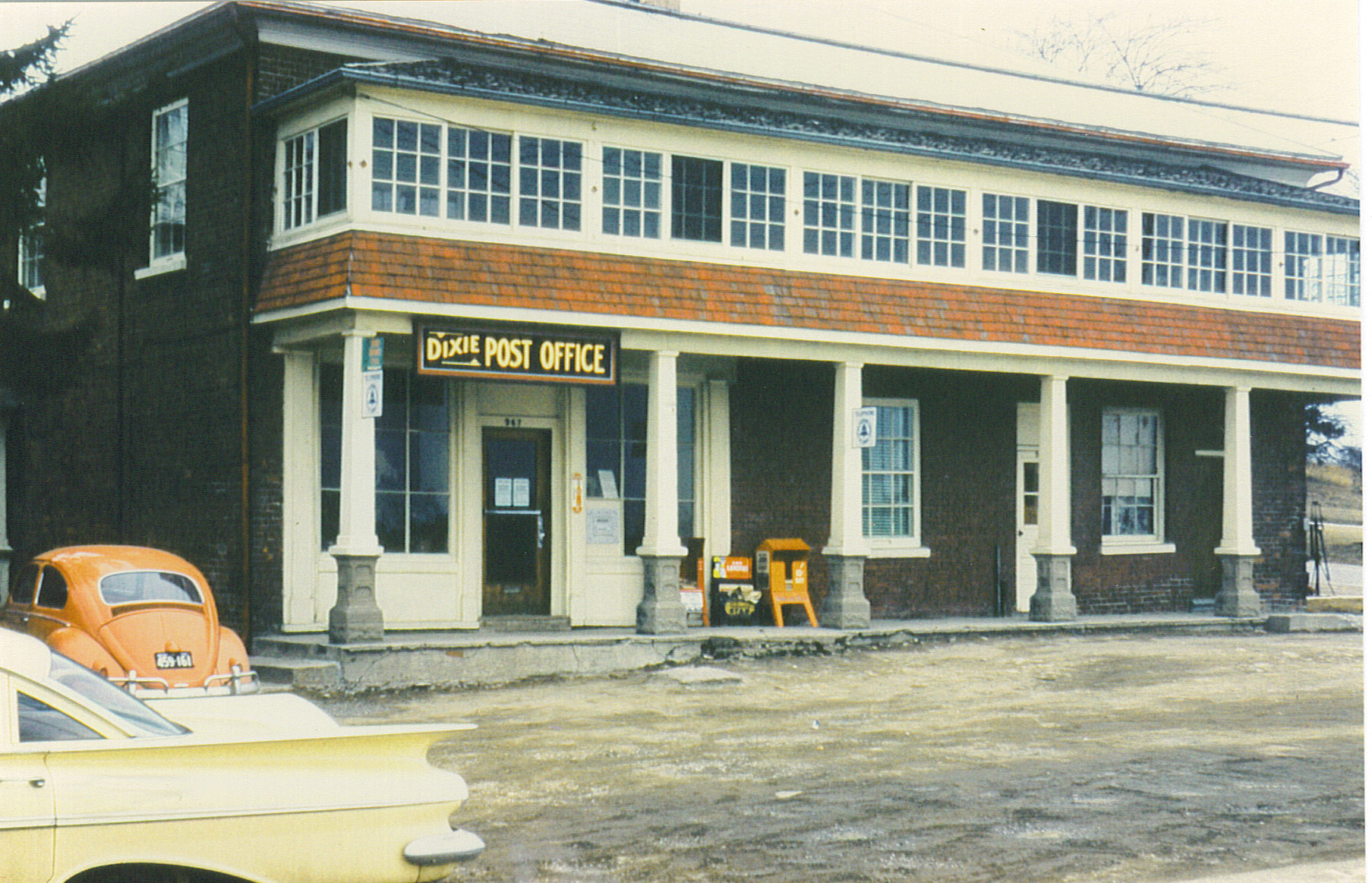
For many years I have been fascinated by stories of historic rivalries. They are often catalysts for change on the landscape. Sometimes they led to famous (and infamous) moments in our history. For many people, the story of the Donnelly family from Lucan, Ontario is a fascinating study, and those violent times were born, in part, as a result of competing hotels and rival stagecoach lines.
I have often wondered if such a thing could have happened here in historic Mississauga. We certainly had many hotels and inns that historically operated in close proximity, and there were several stagecoach lines that catered to the needs of the local population. A few weeks ago we received an inquiry into the former Pacific Hotel at Dixie, which inspired this look at a few early hotels in our community.
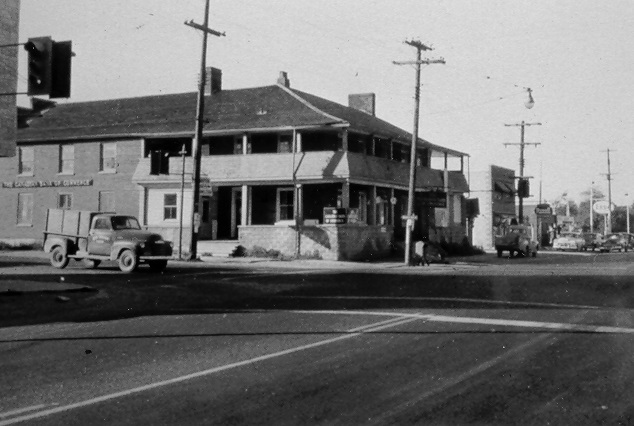
One of our earliest hotels was built at the northeast corner of Hurontario Street and Dundas Street, in the community that would become known as Cooksville. The hotel was built in 1829 by Jacob Cook, at the “intersection of Centre Road and the Great Western Road”, and was called, at first, the Pacific Hotel.
Jacob Cook was born in 1776 in Pennsylvania, and purchased land here in 1819. Jacob did not intend on being a farmer – he had loftier ambitions. In 1820 Jacob applied for, and was granted, a government contract to carry mail between York and Ancaster. At first, he did this single-handedly on horseback. With an eye on expansion, over the next several years Jacob acquired additional mail contracts.
In 1829 Jacob received a tavern license and he built the first hotel in the community, a one-and-a-half storey wooden frame structure to accommodate his stagecoach travellers – the Atlantic Hotel.
The hotel became the departure point for his stagecoach and mail service. From Cooksville, his weekly stagecoach and mail routes went to Toronto, Hamilton, Queenstown, Niagara, Brantford, Galt, Preston, Woodstock, London, Goderich, and throughout Peel County. By 1831, he also operated a daily stage service from Cooksville to Brampton, Cheltenham and Georgetown. Between 1836 and 1839, the hotel’s name appears to have changed to the Cooksville Inn or Cooksville Tavern (the village of Cooksville was formally named in 1836).
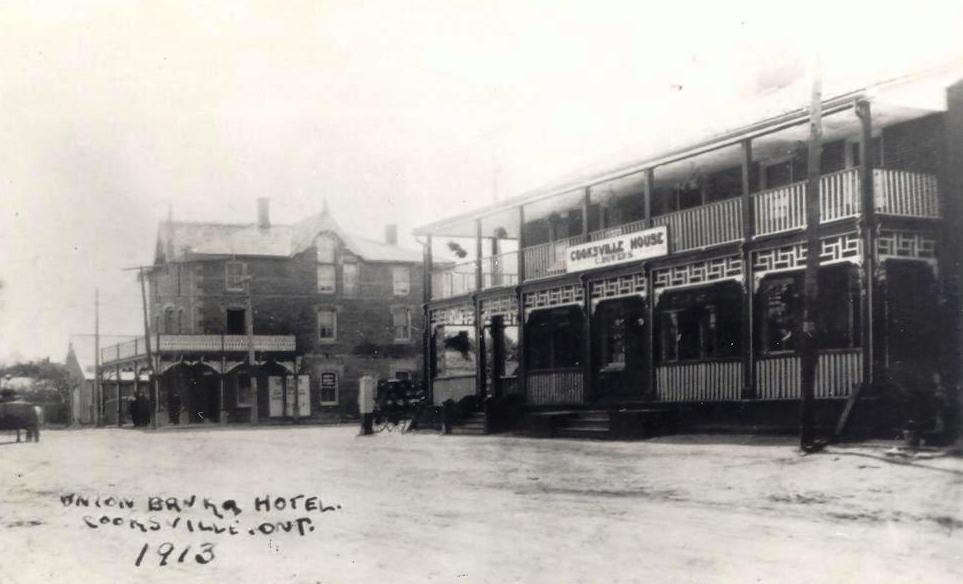
Jacob’s hotel was lost in the great Cooksville fire of 1852, and was replaced with a new hotel later that year by William Harris. Harris’ new hotel was called the Royal Exchange. In 1859 it became the Morley House after its new proprietor, Francis Morley. In 1883 the hotel was purchased James King, who renamed it the King Hotel. In 1905 J.C. Ward bought the hotel, calling it the Cooksville House. George Bowers took over in 1907 who oversaw extensive renovations in 1923, which included a new cement verandah. Later owners included John Braithwaite and Alfred Ward. The old hotel was torn down in 1955 for the widening of Dundas Street.

A short distance to the east, at what is now the northwest corner of Dundas Street and Tomken Road, another early family had designs on the hotel business. William Kennedy, the grandfather of Thomas Laird (T.L.) Kennedy, built his large brick Atlantic Hotel here in 1850.
In 1864 William Kennedy became the community’s first Post Master, when the post office opened in the Atlantic Hotel under the name of Fountain Hill. A mere four months later the post office name changed to Dixie on July 1, 1864. In 1866 there is reference to William Kennedy being the proprietor of the Farmers Hotel in Dixie, but it is unclear if this was an official name. When William Kennedy passed away in 1869, the Atlantic Hotel passed to his son John. In 1869 the hotel was purchased by William Henry, in 1896 by Francis Faulkner, and in 1906 it was bought by Charles Gill.
The old Atlantic Hotel had ceased to be a hotel by this time, and Charles Gill operated the Dixie General Store and Post Office out of the building. The upper floor featured a large ballroom, which served Dixie for many years. This was also the first building in the area to receive a telephone in 1909. In 1946 the building passed to William and Edith Gilmore. The former hotel was torn down in 1968.
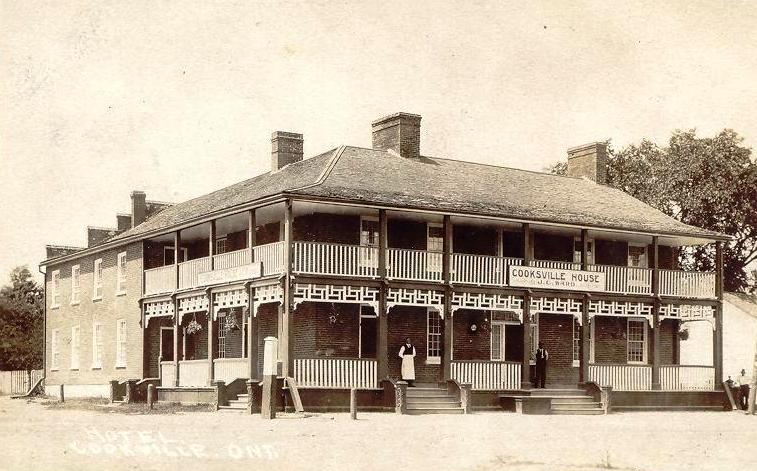
Another hotel, known as the Pacific Hotel, was located nearby the Kennedy’s Atlantic Hotel, but on the south side of Dundas Street. Little is known of it, although it may have been in operation as early as 1857. In 1873 it was operated by Francis McKenny, and by 1906 the owner was Matthew Heary. In 1912 the Pacific Hotel was lost to fire.
There is reference to the early relationship between these two hotels in Dixie: The Kennedy’s Atlantic Hotel was known to be a Tory (Conservative) and protestant establishment, while the Clear Grits (Reformers) and Catholics favoured the Pacific Hotel. Both hotels were called upon by Jacob Cook’s stagecoach.
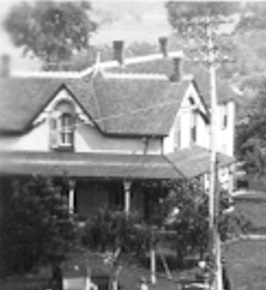
There was yet another early inn that was known as the Pacific Hotel as well, but this one was north of Streetsville and was opened by James Ferrell in 1884. It had a prime location, being situated along the Streetsville road and near the Credit Valley Railway junction. However, the name Pacific appeared to be short lived, as it was referenced as the Junction Hotel in 1894. It ceased operations as a hotel around 1920, and was demolished in the 1950s.
There were many other historic hotels in Mississauga, but it is interesting to see the use of the names Atlantic and Pacific, and wonder about any rivalries that may have occurred in the pursuit of business.
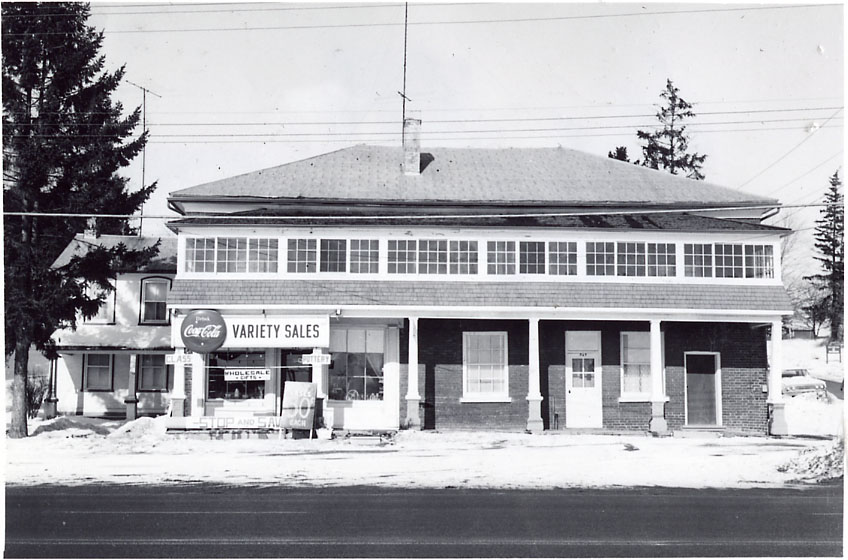



Comments are closed.